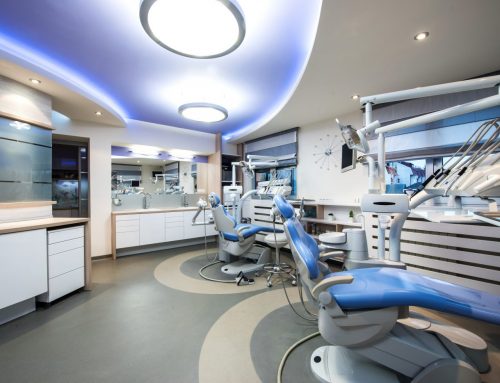You’ve Worked Hard to Build Your Business
From selecting your practice location to designing and building out the office, marketing your business and growing a solid patient base, you’ve invested money, effort and time away from your family to get to where you are today. With that being said, would you be ok with another dentist infringing on your territory and potentially jeopardizing everything you’ve worked for?
Prevent Your Landlord from Gaining an Unfair Advantage

Imagine this: One day your landlord moves another general dentist into your building, a direct competitor, right next to you. You’re outraged. You dig up your dental office lease in frustration and examine it carefully, looking for something to prevent the landlord from moving in a competitor right next to you. Horrified, you realize that you have absolutely no say in the matter and are totally powerless to what’s happening around you. Why? Because there is no “Exclusivity” clause present in your dental office lease.
Unfortunately this unpleasant reality happens frequently to dentists across North America because they are not taught about the risks and traps buried in their dental office lease, or their harmful effects to a practice.
Landlords know very little about the business of dentistry, but what they do know about are leases. The standard dental office lease is typically 30 – 50 pages, outlining the tenant and landlord’s obligations to one another for the duration of the lease term. The lease is engineered by landlords for landlords, used as a tool to increase the value of their properties and maximize their control.
The Power of the “Exclusivity” Clause
How do you protect your business from competitors moving in? Push to negotiate an “Exclusivity” clause into your dental office lease. This clause will protect you by prohibiting your landlord from moving competing dentists into the building throughout the duration of your tenancy.
The ideal Exclusivity clause will spell out a detailed list of specialties that your landlord cannot move into the building such as “oral health professionals” or tenants practicing orthodontics, endodontics, oral surgery, etc. The more granular you get, the more protection you have over competitors. Exclusivity is a must for “new” dental practice owners.
What Type of Dentistry Can You Practice?
Should your landlord move another dentist in next door, how will you compete? You can upgrade your facilities/equipment, launch an aggressive marketing/promotional campaign, or offer alternative forms of dentistry to patients that your new neighbor may not. But wait, are you sure your lease is set up to allow you to offer other services?
Check the “Use” Provisions in Your Dental Office Lease

The “Use” clause dictates how you are permitted to use the rented space, setting liberties and/or limitations on what services and products you may offer to patients. Landlords will pay close attention to “Use” language in the lease in an attempt to restrict the type of dentistry you may practice, affording them the freedom to move in future tenants without worrying about exclusivity conflicts.
Take Precautionary Measures
The success of your dental practice and its ability to function, grow and compete in the marketplace are highly dependent on the details outlined in your lease. Carefully search for and review the Exclusivity and Use clauses prior to your dental office lease negotiations with you landlord to ensure you are set up with the flexibility necessary to grow your business and compete if and when you have to.
Sign-up for a personalized lease consultation with a Cirrus expert, today!



